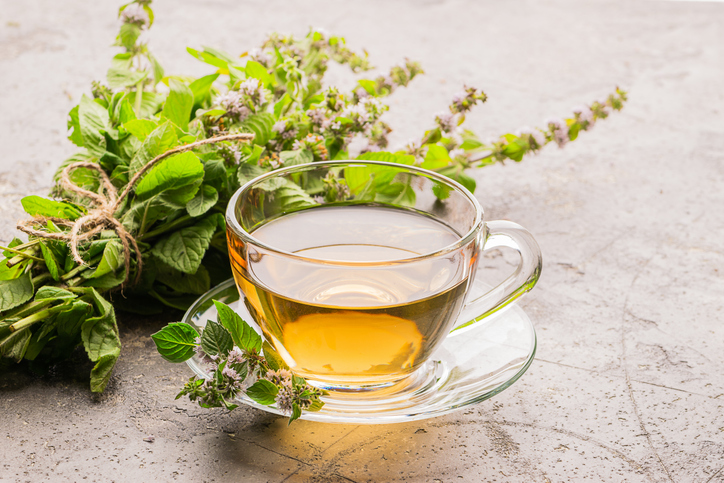As the cold and flu season continues, it is good to have simple herbal remedies on hand. Common kitchen herbs can shorten the duration of a virus and take the edge off unpleasant symptoms.
Many of us know about using peppermint or ginger during a cold or a respiratory infection, but we know less about how to deal with a rotavirus — the dreaded stomach bug. While there is no way to stop this virus once it takes hold, you can absolutely ease the symptoms.
Two of my favorite herbs for digestive distress are chamomile and lemon balm. Luckily, both make a tasty tea. Chamomile has a mild, flowery flavor. Lemon balm is refreshing and citrusy; many children enjoy the taste. Both herbs have medicinal properties useful for an upset stomach.
Chamomile
Chamomile is most known as calming for the mind. In medicinal doses, it has a soothing effect on the nervous system. This is valuable any time, but especially during the stress of an illness.
Because dehydration is a concern during the stomach flu, sipping chamomile tea will replenish fluids. It will also soothe the gastrointestinal tract. Chamomile is anti-inflammatory and anti-spasmodic. It will help with the cramping that accompanies painful diarrhea.
Lemon Balm
Lemon balm tea is another good herb to sip during and after the acute stage of a rotavirus. This herb is used for a host of digestive issues, particularly for those with nervous stomach and/or restlessness. Lemon balm shares the antispasmodic properties of chamomile. It is specified for stomach cramping and spasms. Lemon balm is also known to lighten one’s mood, perfect for when we (or our children) are sick and grumpy.
If you’re purchasing store-bought tea bags, remember that using 1 bag is not a medicinal dose of herbs. Try using 2 bags in 1 cup of water for a strong infusion, or buy dried, loose leaves and make your own cup: 1-3 teaspoons of herb in 1 cup of water, drinking several times throughout the day.
Luckily, a rotavirus usually only lasts 12-24 hours; however, it can zap our appetite for up to 10 days. What to eat when we’re past the acute stage?
Slippery Elm
Slippery elm is considered a “nutritive” herb. In addition to its medicinal properties, it also provides nutrition. It is wonderful to have on hand for recovering from the rotavirus. This herb is fantastic food for when the stomach won’t tolerate our usual meals. It’s a lot like oatmeal: slightly bland and easy to digest.
Slippery elm has a mucilaginous quality — meaning it has a gooey texture. Think of oatmeal again. That quality makes it soothing to the gastrointestinal tract. It is also an astringent herb, which tightens and tones tissues. While oatmeal could loosen stool, slippery elm will prevent diarrhea. Slippery elm can be purchased dried. Add a little water to create the consistency you desire. Aim for a breakfast-cereal texture. Cinnamon and honey can be added for flavor.
I hope these tips help you stay well this winter!
Adrienne offers wellness consultations to those looking for holistic ways to prevent and treat health issues. She is a professional herbalist, certified by the East West School of Planetary Herbology. Adrienne has also taught yoga and meditation for 20 years, certified by the Sivananda Vedanta Centre. Learn more from her website: https://wellnesswithadrienne.com.
You can find these herbs in our Bulk Herbs department. Learn more here.



[…] easy-to-make Stomach Flu Smoothie as well as 10 Natural Stomach Bug Remedies Plant-based remedies (such as food, herbs, and essential oils) and minerals from the earth (such as […]
Thank you.
This is very helpful and easy to understand